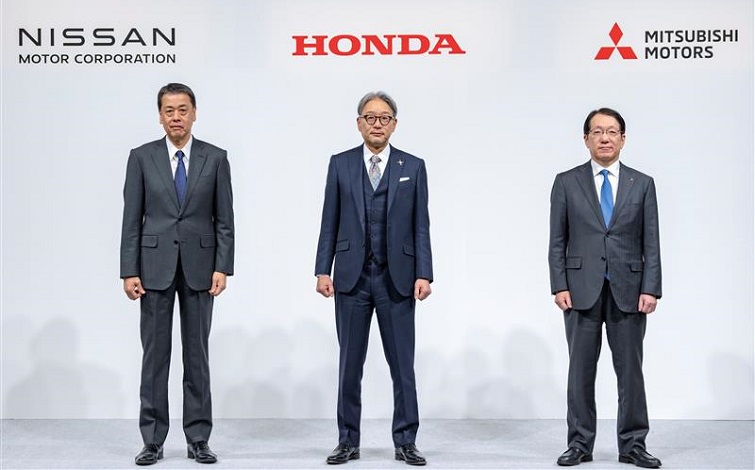Nissan and Honda recently announced that they have signed a memorandum of understanding (MoU) to explore the possibility of a merger between the two companies. The discussions are centered around the establishment of a joint holding company that would oversee both Nissan and Honda as fully owned subsidiaries.
The primary motivation behind this potential merger is the need for both companies to stay competitive in the rapidly evolving automotive industry, particularly with the shift towards electric vehicles led by Chinese OEMs. By joining forces, Nissan and Honda aim to enhance their global competitiveness, deliver more attractive products and services to customers worldwide, and address the challenges posed by the industry’s transformation.
In addition to their collaboration in EV technology, the MoU also opens up the possibility of Mitsubishi Motors joining the consolidation. The three companies are exploring the potential for synergies through Mitsubishi Motors’ participation in the business integration.
The integration between Nissan and Honda is expected to leverage their management resources, knowledge, human resources, and technologies to create deeper synergies, enhance their ability to adapt to market changes, and improve their corporate value in the mid- to long-term.
The merger would involve the establishment of a joint holding company through a share transfer, with both Nissan and Honda becoming subsidiaries of this entity. The companies plan to continue developing and coexisting with their respective brands equally.
The expected synergies from the integration include scale advantages through standardized vehicle platforms, enhancement of development capabilities and cost synergies, optimization of manufacturing systems and facilities, strengthening of competitive advantages across the supply chain, operational efficiency improvements, and talent foundation for intelligence and electrification.
The method of business integration involves the establishment of a joint holding company, which is planned to be listed on the Tokyo Stock Exchange in August 2026. Both Nissan and Honda will become wholly owned subsidiaries of the joint holding company, with shares of the new entity available for trading on the TSE.
Overall, the potential merger between Nissan and Honda represents a strategic move to consolidate their resources, improve their competitiveness, and drive innovation in the evolving automotive landscape. The integration aims to create a unique value proposition for customers and position the companies as leaders in the global mobility sector.






